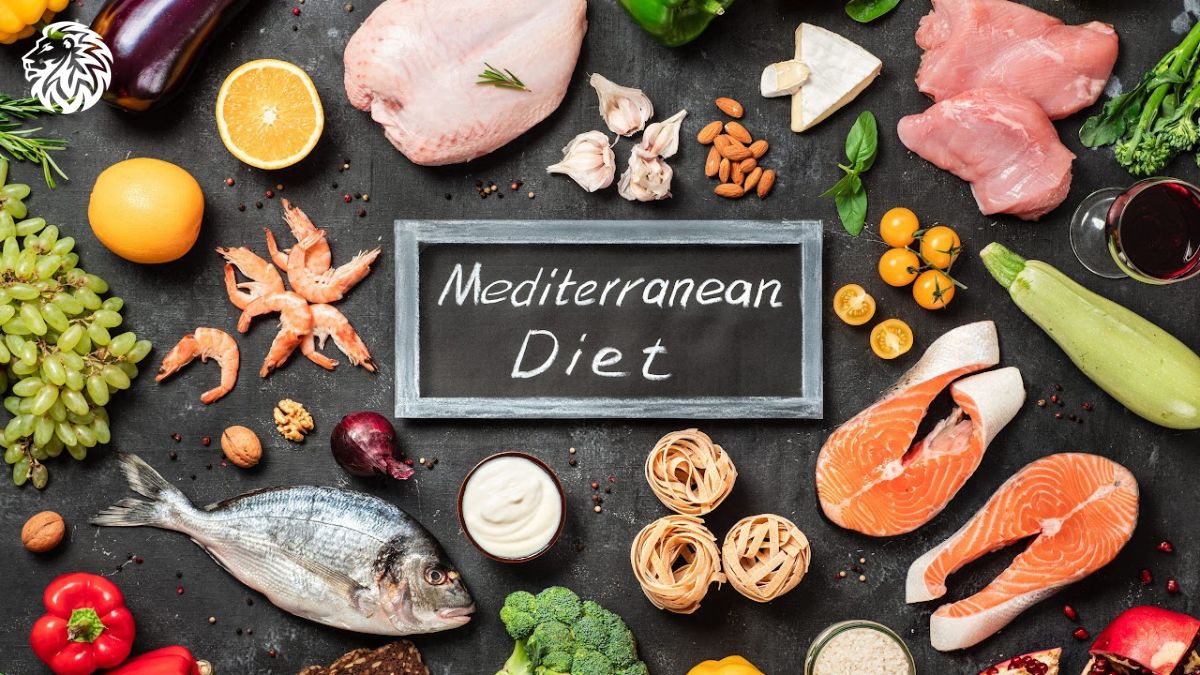In recent years, the Mediterranean Diet has gained popularity for its health benefits. This eating plan is based on the typical Mediterranean diet and emphasizes eating plant-based foods, healthy fats, and lean proteins. Numerous health advantages have been associated with it, such as improved brain function, lowered risk of heart disease and diabetes, and weight loss.
Because not all foods are created equal, some should be avoided and others should be included in your diet. We’ll examine the Mediterranean Diet in more detail in this article and provide detailed list of foods to eat and stay away from for optimum health.
The Basics of the Mediterranean Diet:
The Mediterranean Diet is a way of eating that’s based on the traditional eating habits of people living in countries bordering the Mediterranean Sea. This diet focuses on consuming plant-based foods, healthy fats, and lean proteins. It’s rich in fruits and vegetables, whole grains, nuts, seeds, legumes, and olive oil. Fish and seafood are also an important part of the Mediterranean Diet, while red meat and processed foods are consumed in moderation. The Mediterranean Diet has been studied extensively and has been linked to numerous health benefits. Some of these benefits include reducing the risk of heart disease, stroke, type 2 diabetes, and certain types of cancer.
The Science Behind the Mediterranean Diet:
The scientific research behind the Mediterranean Diet has shown that it can provide numerous health benefits. The Mediterranean Diet has been linked to reducing inflammation in the body. This is the result of the high consumption of plant-based foods, like fruits and vegetables, whole grains, and legumes, associated with the Mediterranean Diet. This has been shown to reduce the risk of chronic diseases such as heart disease, stroke, and certain types of cancer.
The healthy fats found in the Mediterranean Diet, such as olive oil and nuts, have been shown to improve cholesterol levels and reduce the risk of heart disease. Additionally, these fats contain antioxidants, which can help reduce inflammation in the body and protect against oxidative stress.
The Mediterranean Diet has also been linked to improved brain function. Some studies suggest that this may be due to the high consumption of omega-3 fatty acids found in fish and seafood. Omega-3 fatty acids have been associated with improved cognitive function.
Foods to Avoid in the Mediterranean Diet:
Processed Foods: Processed foods, such as packaged snacks, frozen meals, and fast food, are typically high in added sugars, unhealthy fats, and sodium. These foods should be avoided on the Mediterranean Diet as they’re not part of the traditional Mediterranean way of eating.
Added Sugars: Foods high in added sugars, such as soda, candy, and baked goods, should be limited on the Mediterranean Diet. Instead, you should focus on consuming natural sources of sugar, such as fruits and honey.
Trans Fats: Trans fats are typically found in processed foods, such as margarine and fried foods. They can raise bad cholesterol levels and increase the risk of heart disease. It’s important to avoid trans fats on the Mediterranean Diet and opt for healthy fats, such as olive oil and avocado.
Foods to Eat in the Mediterranean Diet:
Fruits and Vegetables: The Mediterranean Diet emphasizes consuming a variety of fruits and vegetables. These foods are rich in vitamins, minerals, and antioxidants, and can help reduce the risk of chronic diseases. Aim for at least five servings of fruits and vegetables per day.
Whole Grains: Whole grains, such as brown rice, quinoa, and whole-wheat bread, are a great source of fiber, vitamins, and minerals. They’re also low in fat and can help keep you feeling full for longer. Aim for at least three servings of whole grains per day.
Healthy Fats: The Mediterranean Diet emphasizes consuming healthy fats, such as olive oil, nuts, and seeds. These fats can help reduce inflammation and lower bad cholesterol levels. Aim to consume healthy fats in moderation.
Lean Proteins: Fish and seafood are an important part of the Mediterranean Diet. Other lean protein sources, such as chicken, turkey, and legumes, are also recommended. Red meat should be consumed in moderation.
Conclusion:
The Mediterranean Diet is a healthy and balanced way of eating that emphasizes consuming plant-based foods, healthy fats, and lean proteins. It’s been linked to numerous health benefits. Some of these benefits include weight loss, reduced risk of heart disease and diabetes, and improved brain function. To get started on the Mediterranean Diet, focus on consuming more fruits and vegetables, whole grains, healthy fats, and lean proteins. In addition, limiting processed foods, added sugars, and trans fats. With its focus on natural, whole foods, the Mediterranean Diet is a delicious and satisfying way to improve your health and well-being.
Mediterranean Diet FAQs:
How Do I Get Started on the Mediterranean Diet?
To get started on the Mediterranean Diet, focus on consuming more plant-based foods, healthy fats, and lean proteins. Replace processed foods with whole, natural foods, and incorporate more fruits and vegetables into your meals. Experiment with new recipes that use olive oil, nuts, and seeds.
Can I Lose Weight on the Mediterranean Diet?
Yes, the Mediterranean Diet can help with weight loss. It’s a healthy and balanced way of eating that emphasizes whole and natural foods. This can help in reducing the risk of overeating.
Can I Follow the Mediterranean Diet if I’m Vegetarian or Vegan?
Yes, the Mediterranean Diet can be adapted to meet vegetarian and vegan dietary needs. Focus on consuming plant-based proteins, such as legumes, tofu, and tempeh, and incorporate healthy fats, such as nuts and seeds.
Is the Mediterranean Diet Safe for People with Food Allergies?
The Mediterranean Diet is generally safe for people with food allergies, as it’s based on whole, natural foods. However, if you have specific food allergies, you may need to modify the diet to meet your needs.
Is the Mediterranean Diet Suitable for Children?
Yes, the Mediterranean Diet can be a healthy and balanced way of eating for children. Focus on incorporating a variety of fruits and vegetables, whole grains, lean proteins, and healthy fats into their meals.







